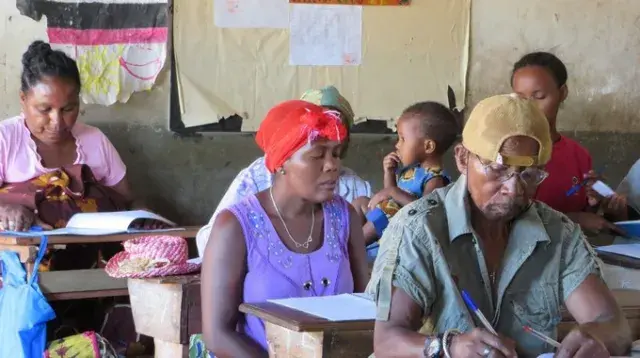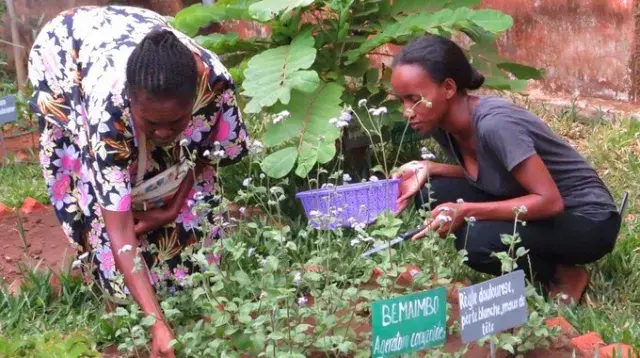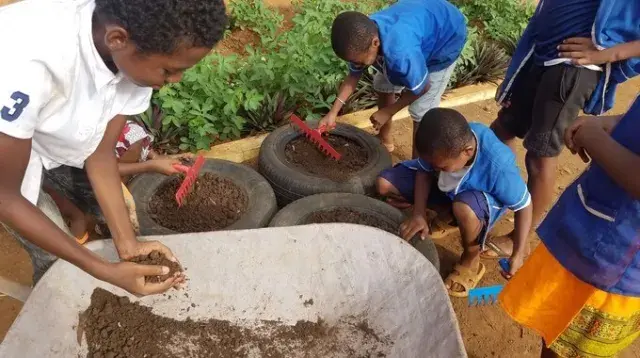Improving access to healthcare through medicinal plants in Northern Madagascar
In Madagascar’s northern Diana region, where access to conventional medicine remains limited, the Jardins du Monde association, with the support of the Klorane Botanical Foundation, is using medicinal plants to improve the health of local communities. This project uses community gardens, training and the dissemination of traditional knowledge as part of a sustainable philosophy that protects biodiversity.
Et si la nature détenait les clés de notre santé ?
Micke Science vous explique comment l’association « Jardins du Monde » propose aux communautés de Madagascar de se former à l‘usage des plantes médicinales pour mieux se soigner.
Par une méthode pédagogique validée par un conseil scientifique, ces enseignements permettent aux habitants d’avoir un accès à la santé de manière sûre et gratuite.
C’est l’engagement de « Jardins du Monde » et de Klorane Botanical Foundation
Un engagement pour la nature et pour l'Homme !
Micke Science, créateur de contenu en vulgarisation scientifique
MEDICINAL PLANTS: A RESPONSE TO COMMUNITY HEALTH CHALLENGES
A healthcare system that remains unavailable to many
With 80% of its population living in rural areas, Madagascar faces the challenge of an under-equipped health system that is often out of reach to locals. The country has fewer than two doctors and two hospital beds per 10,000 people – well below the world average. Conventional medicine is imported and expensive, and unavailable to the majority of the population. In the Diana region, the few basic healthcare centres (CSBs) are more than a thirty-minute walk away for most inhabitants.
To remedy this situation, Jardins du Monde has been working for over thirty years to promote an invaluable indigenous resource: traditional pharmacopoeia. With its exceptionally rich – and largely endemic – biodiversity, Madagascar's profusion of medicinal plants has earned it the title of “Africa’s Natural Pharmacy”. Yet this richness is under threat from all sides: every year, 99,000 hectares of Malagasy forest are lost.

Passing on traditional knowledge through training
The Jardins du Monde project is built on thirty years of scientific knowledge of traditional pharmacopoeia and methods of disseminating knowledge. Its aim is to raise awareness among 2,000 villagers and 500 schoolchildren in the commune of Sakaramy, and to train 100 villagers in the use of medicinal plants and good practices in health, nutrition and hygiene by 2027. Through a series of practical, fun and theoretical training courses, they will learn to cultivate, harvest, prepare and use plants to treat common illnesses. In 2025, a manual translated into Malagasy, with a print run of 2,000 copies, will bolster this education initiative.
GARDENS FOR AUTONOMY AND BIODIVERSITY

Creating spaces for health and living
It is vitally important to re-empower local people in matters of health, and this is why the educational community gardens central to this project are designed to ensure sustainable access to medicinal plants. Three community gardens will be created by 2027, along with an educational garden in a school to raise the awareness of 500 students.

Training in agroecology
Within the communities that are home to these gardens, sixty villagers will receive agroecology training, including composting, biological control and plant conditioning techniques. These practices promote the sustainable exploitation of local resources, and help to empower communities. In rural areas, they encourage new habits which, in time, could be extended to other agricultural practices.
PROMOTING DIALOGUE BETWEEN TRADITIONAL AND CONVENTIONAL MEDICINE

Training healthcare professionals in the use of medicinal plants
To ensure that medicines are used in a complementary way, the project also involves local health workers and traditional practitioners. Over a three-year period, 14 healthcare staff from the health centre and community workers from the local commune will be trained in the use of medicinal plants. At the same time, 180 paramedic students will receive in-depth training, and the work of nearly 200 traditional practitioners will be validated and more widely recognised.
Supporting local infrastructure
The last project goal is to support the task of renovating and updating the Sakaramy health centre. This technical and practical support will help to build an inclusive healthcare system that is tailored to local needs.
In its promotion of local biodiversity and focus on the transmission of knowledge and sustainable practices, this project is helping to ensure that Malagasy communities are truly empowered in terms of healthcare. This is an initiative that closely links all types of medicine, involving all stakeholders in building a shared future.
PARTNER
Since 2003, Jardins du Monde has been working to improve the health of sectors of society with little or no access to conventional medicines. Drawing on solid scientific expertise in ethnobotany and pharmacognosy, the association partners with village collectives, academic organisations, doctors, students and health practitioners to build a sustainable system while preserving a unique botanical and cultural heritage.
SUMMARY
In Madagascar, the autonomy of rural communities with regard to healthcare is being reinvented through the use of medicinal plants and associated knowledge.
